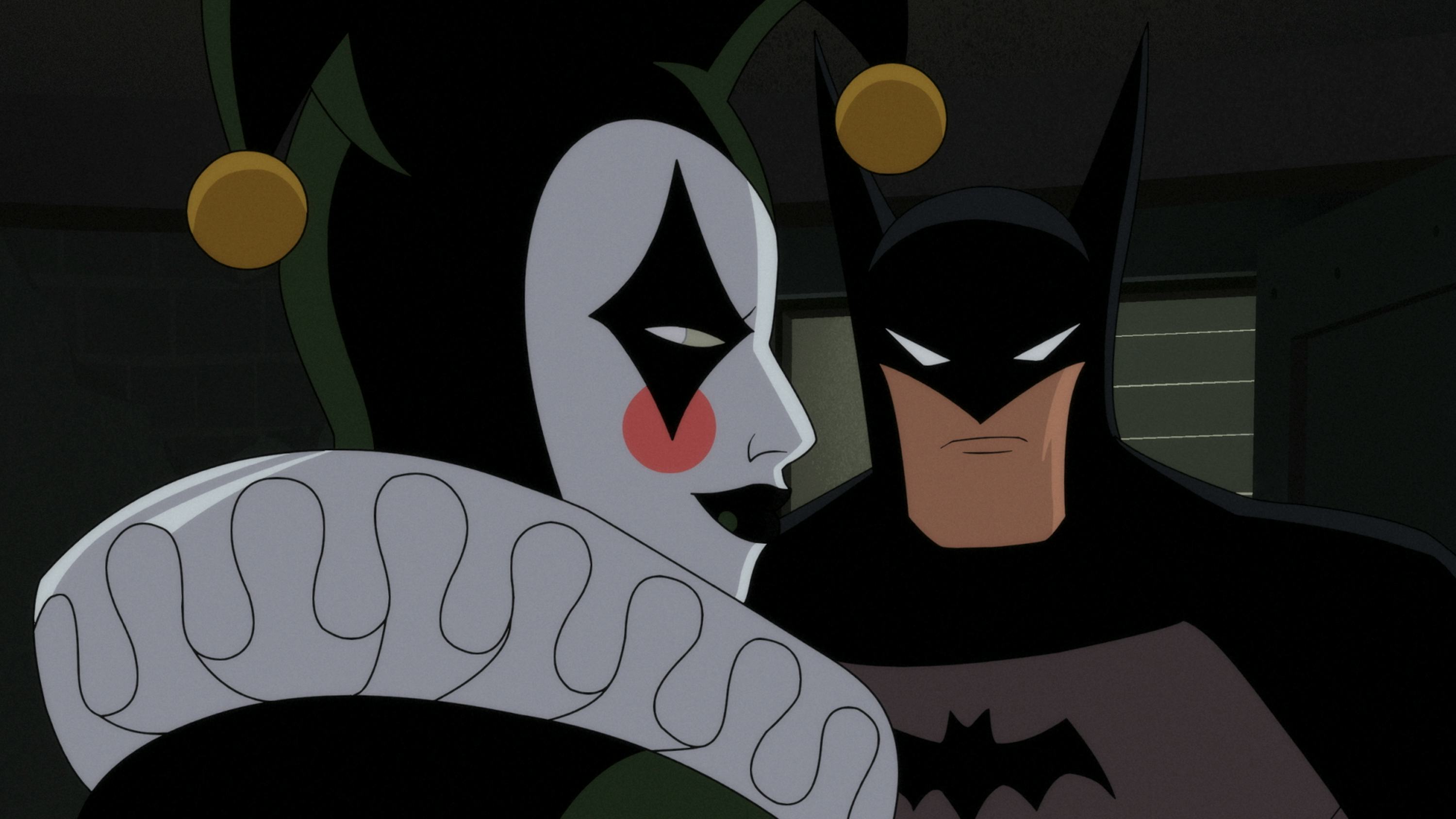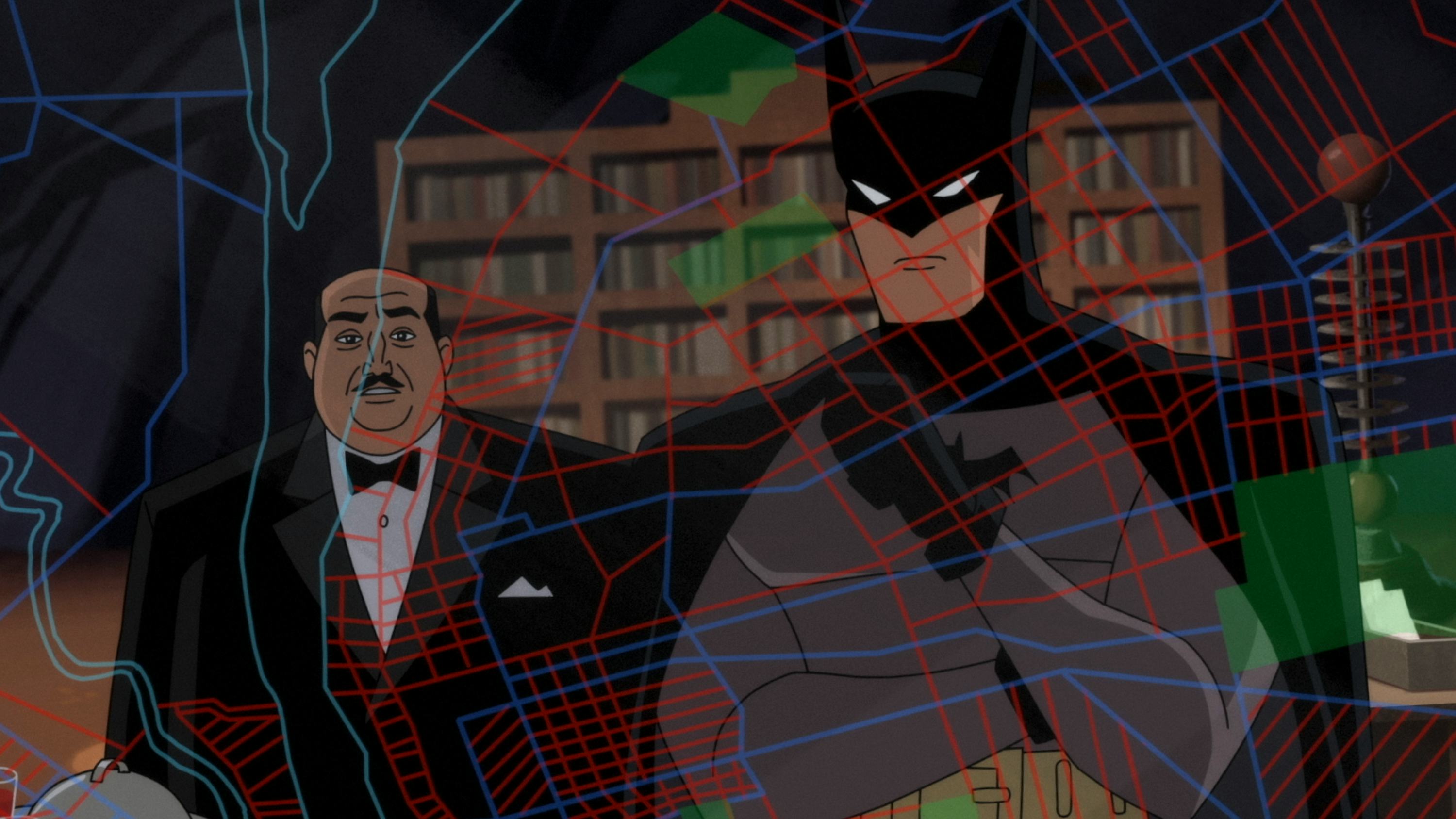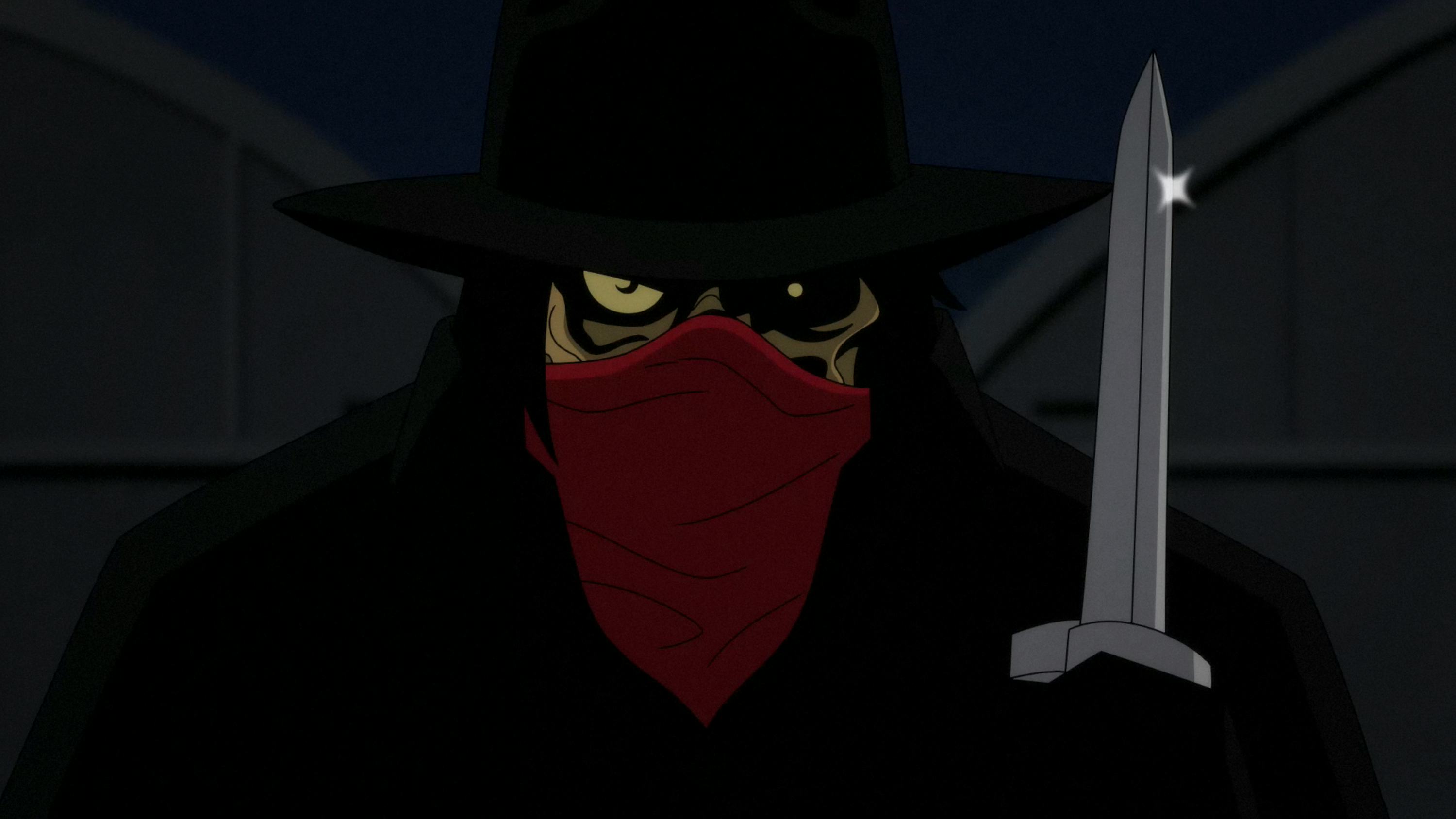
When Batman: The Animated Series premiered in 1992, it set a new standard for animation. Its sendup of film noir, combined with its unique Art Deco design and surprisingly bold, deceptively simple storytelling was like nothing seen in kid’s cartoons before. Spearheaded by co-creator Bruce Timm, BTAS would become the first show in a franchise dubbed the “Timmverse,” a series of interconnected animated comic book shows centered around superheroes like Superman, Static Shock, a future Batman, and the Justice League. But despite some of the storytelling highs the Timmverse reached, none could top Batman: The Animated Series.
So it’s no wonder that, 30 years later, Timm has gone back to that original formula.
Set in the early years of Bruce Wayne’s career as a bat-eared vigilante, Batman: Caped Crusader is both a love letter to and a remix of the story we know so well. When we first meet this Batman (voiced by Hamish Linklater), he’s still just an urban myth to Gotham’s criminals, many of whom don’t believe he exists. But aside from this premise and dark tone borrowed from Frank Miller’s Batman: Year One comic arc, Caped Crusader carves out a new path. In this Gotham of the 1940s, the city’s police are hopelessly corrupt, as is its sleazy DA, Harvey Dent (voiced by Diedrich Bader). The lone bright spots within the system are Commissioner Jim Gordan (Eric Morgan Stuart) and his daughter, idealistic prosecutor Barbara Gordon (Krystal Joy Brown). But it takes a while for Batman to ally himself with them as he learns how to navigate the all-consuming corruption of Gotham’s elite and the vast underbelly of the criminal underworld, populated by characters that we just recognize.

Caped Crusader takes many a creative liberty that could have longtime Batman fans stewing (Bruce Timm, your obsession with Bruce x Barbara is ridiculous), but it also feels like a refreshingly new approach, even within the confines of the familiar retro setting. It’s almost as if whatever censorship board or primetime network note that was holding Timm back has now been thrown out the window, and we can see what he intended for Batman: The Animated Series in its purest form.
At the same time, Caped Crusader knowingly synthesizes the elements that made Batman: The Animated Series work despite its limitations. It’s as if Timm took the vibe of the Joker’s signature attack in BTAS, his paralyzing laughing gas — which was the team’s solution to the show’s “no-kill” rule that managed to create something even more disturbing — and turned it into a whole show. It’s darkly elegant and slightly disturbing, but still easily digestible and accessible.

That said, Caped Crusader doesn’t quite reach the highs of The Animated Series – at least, not yet. Despite a compelling serialized story arc that charts Harvey Dent’s mayoral campaign and how his shady politics impact the villains that Batman comes into contact with, Caped Crusader’s strongest moments come when it leans into its standalone stories. Its best episode (a clash with Clayface) feels like an unearthed BTAS episode, albeit with slightly more panache and a decidedly more retro slant. This imbalanced quality makes Caped Crusader feel like it could be more interesting as a proof of concept, rather than a fully fleshed-out series.
But despite some of its lulls, Caped Crusader is a beast of an animated series. With its relatively untested Bruce Wayne and its fresh takes on familiar rogues, the show keeps even longtime Batman fans on their toes. It’s the kind of novel, ambitious Batman series that doesn’t just satisfy itself by appealing to nostalgia. It’s trying something new and bold — which is exactly the kind of legacy that Batman: The Animated Series should always be remembered by.







